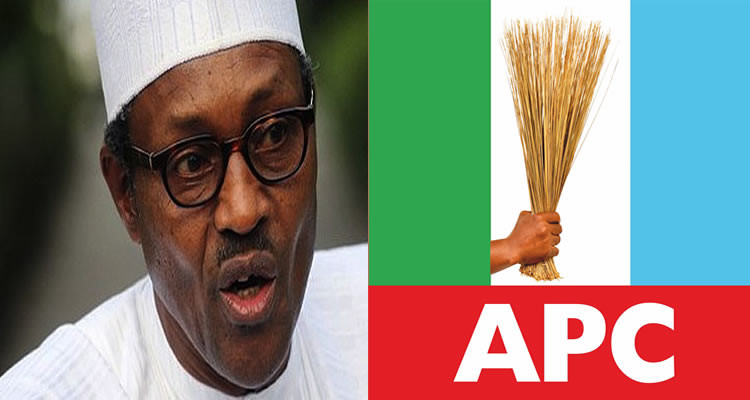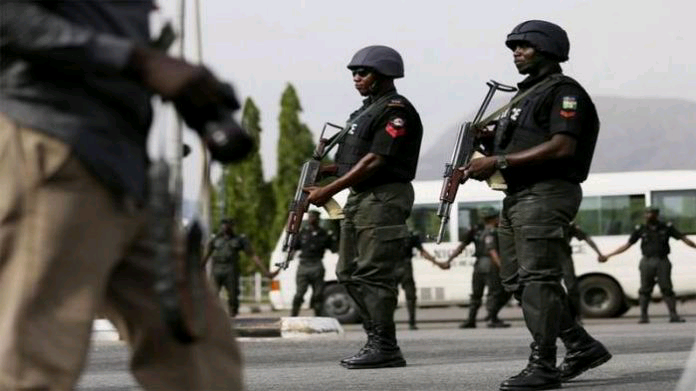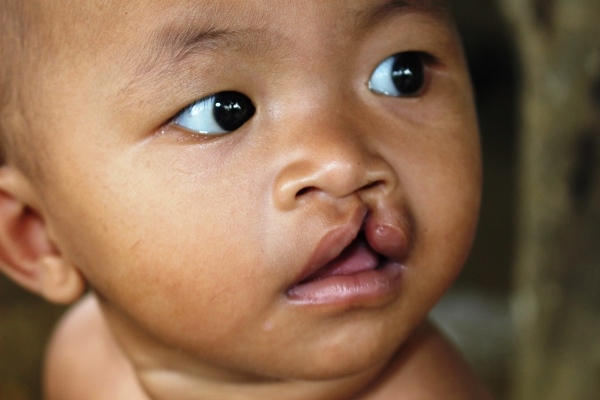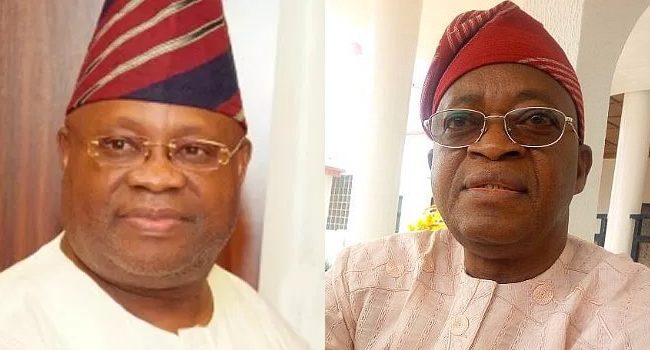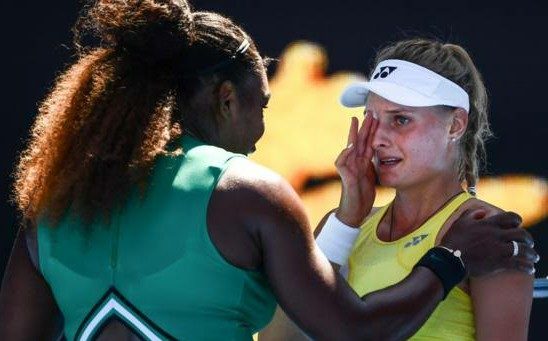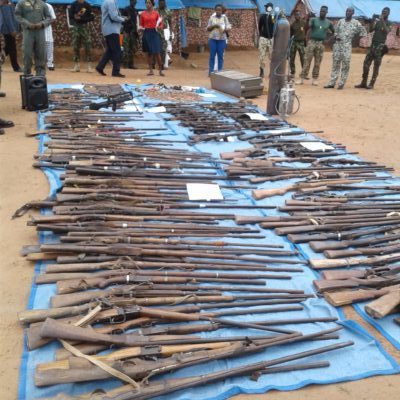It is almost three years down the road and many Nigerians feel that the All Progressives Congress (APC) government has not delivered most of its campaign promises.
The memory of how the Peoples Democratic Party (PDP) lost the Presidency to the APC in 2015 is still fresh in the minds of Nigerians. If the people could vote out a ruling party in 2015, they can do same in 2019. There were many hurdles that the PDP failed to cross. Would the APC also fail to do the same? If the APC plans to win again in 2019, there are impediments that need to be cleared.
Perception
Prior to the 2015 general elections, the President of Nigeria, Mr. Muhammadu Buhari, was branded an ethnic and religious bigot by the PDP. Some members of the party went as far as saying that he would ‘Islamize’ Nigeria if given the chance. Many people believed in the allegation. Nigerians were told of his antecedents as a sectional leader who would not accommodate many women in his cabinet.
Fast forward to three years later, some Nigerians still perceive him the same way. The lopsided appointments have not helped matters. As predicted women are very few in his cabinet. A social commentator, Mr. Dapo Olanrewaju, described him as someone who is surrounded by people of “like minds” who have succeeded in helping him to sideline those who helped him to win election in 2015: “He surrounds himself with like minds and sidelines those who helped him win.” Speaking further, he said he was “only pretending to be accommodating of all ethnic groups. Now everyone can see his true colours.”
His wife, Mrs. Aisha Buhari, in 2016 in an interview with BBC Hausa service said that the president had sidelined those who worked for him to win and surrounded himself with those who don’t even “have Permanent Voter’s Cards (PVC).”
Last week, on her social media pages, she reposted statements of Senator Isah Misau of the APC and Senator Ben Murray-Bruce of the PDP criticizing her husband mainly for the level of nepotism he has displayed. That was seen as an endorsement of what was said.
Economy and job creation
For the economy, the President has not fared better than former President, Goodluck Jonathan. The economy is still scoring low points. Although it is believed that the recession is over, Nigerians are still wallowing in poverty. So many cannot afford a square meal a day. As the APC plans for 2019, it needs no prophet to tell them that the economy must be fixed.
In fact, the party had proposed in its manifesto to create millions of jobs. If we may ask where are the jobs? Instead of doing that, we are witnessing the opposite. Millions of Nigerians have lost their jobs since the APC government came on board. According to data from the National Bureau of Statistics (NBS), under President Buhari, Nigeria has the worst unemployment figures ever. A total of 7.956 million Nigerians became unemployed between January 2016 and September 30, 2017.
Communication
There is a concern in many quarters that the APC-led government has not communicated effectively with the citizens of Nigeria when it matters the most. There have been some demands by the masses in recent times that fell on deaf ears. The same mistake made by the past administration.
For instance, the Nigerian masses suffered for two weeks in January 2012 during the fuel subsidy crisis. It took two weeks for the Jonathan-led administration to come up with a solution. During that fuel crisis, Nigerians made up their minds that Jonathan and his cronies were insensitive to the plight of ordinary citizens.
Former Minister of Petroleum, Diezani Alison-Madueke, was accused of allegedly embezzling money, the presidency turned a deaf ear and she remained as minister throughout the tenure. It would also be recalled how long it took Jonathan to sack former Minister of Aviation, Stella Oduah, even when the weight of allegations could not be ignored.
Another blunder by Jonathan was when over 200 school girls were reportedly abducted and the government ignored it.
The same scenarios are playing out under President Buhari’s APC government. It took the pressure from Nigerians before the President could set up a committee to look into the allegations against the former Secretary to the Government of the Federation (SGF), Babachir Lawal. He was fired after he was found guilty of embezzling public funds. Before Lawal was investigated and fired, the Presidency defended him without finding out if he was guilty or not of the alleged crime.
When Nigerians were suffering at petrol stations across the country, the President’s team released a documentary titled ‘The Human Side of Buhari.’ It came out as a flop due to the timing of it. Nigerians expressed their anger in many ways.
At the height of the herdsmen invasion of the Middle Belt, which led thousands to their graves, the President kept quiet. In his New Year speech, he did not even mention anything about the attacks.
He was also quiet about the herdsmen carnage in the Middle Belt. He spoke out only when the pressure was unbearable for him.
The President and his team would have to do better in terms of listening to Nigerians and communicating effectively with them if they want to return in 2019.
Security
While the Buhari administration has tried its best in tackling Boko Haram through military force, other security challenges have surfaced.
One of the main reasons Nigerians voted for the APC was because it was believed that the security situation would improve given the military background of the President.
The country is even in a worse situation than the way the former president; Goodluck Jonathan, left it almost three years ago. Terrorism persists in some parts of the North East and is beginning to rare its ugly head in the North Central part of the country in the form of herdsmen invasions. As a result of the high rate of unemployment, many Nigerians have taken to crimes to eke out a living. Kidnapping is on the rise.
Corruption
There have been cases of corruption under the Buhari administration. So much is even happening around the President in that area. The case of Lawal is one in point. Perhaps the one that has lingered on for a long time is that of Abdulrasheed Maina, a former boss of the Pension Reform Task Team (PRTT), who was fired by the last administration for corruption and reinstated by the current administration. It affected the image of the President negatively.
Recently $44 million was alleged to have been stolen from the vaults of the National Intelligence Agency (NIA). As a result, the House of Representatives last week, resolved to probe the newly appointed Director-General of NIA, Mr. Ahmed Rufai Abubakar.
In all of this, what do Nigerians think about the goings-on in the country? According to Prof. Akin Oyebode, a professor of International law, Nigerians are beginning to lose faith in the president due to how the administration is handling corruption cases. He also advised him,“he needs to act fast to regain the confidence Nigerians had in him.”
“All the corruption allegations under this administration have raised serious doubts in the minds of Nigerians about President Muhammadu Buhari’s war on corruption,” Prof. Oyebode said.
National Unity
Nigeria is more divided than ever as a result of actions and utterances by the President. Before the 2015 elections, the two main political parties, the APC and PDP used campaigns of division all in the quest to grab power. It opened old wounds. What steps did Buhari take to heal wounds and unite a country that he met deeply divided by the hate campaigns of the PDP in 2015?
He came and made it worse. It is evident that his political appointments are not a reflection of the diversity of Nigeria. His failure to balance diversity, according to social commentators, is one of the reasons the country is so divided today.
To make matters worse, President Buhari at the US Institute of Peace, while speaking with Dr. Pauline Baker said, “I hope you have a copy of the election results. The constituency, for example, that gave me 97% of votes cannot in all honesty be treated on some issues with constituencies that gave me 5%.”
In the last few years, several issues have cropped up, which the President may have to look into; such as restructuring, agitations by groups and menace of the herdsmen.
Speaking with The Next Edition, a political analyst, Thompson Babajide, said “It would take years for the government to correct its mistakes. The blunders are enormous. Where do they start from? Their house is not even in order. Who is the leader of the party? We don’t know. Who is the Chairman of the Board of Trustees? Have they even had a national convention? I think it is too late.”
Is it too late? Only time will tell.
